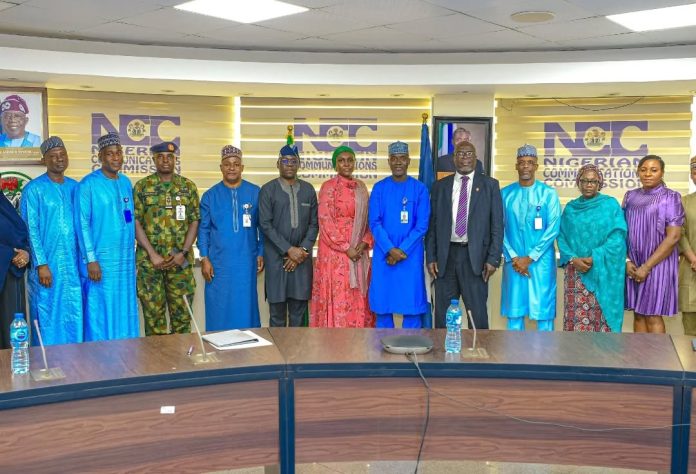In a heartfelt meeting held at the headquarters of the Nigerian Communications Commission (NCC), two of Nigeria’s key institutions came together with one shared goal: to save lives through better communication.
Dr. Aminu Maida, the Executive Vice Chairman and CEO of the NCC, warmly received Mrs. Zubaida Umar, Director General of the National Emergency Management Agency (NEMA), as both leaders led conversations about a stronger, more connected Nigeria—especially in times of crisis.
For a country as large and complex as Nigeria, emergency situations—floods, accidents, natural disasters—can strike without warning. When they do, timely and accurate information can mean the difference between life and death. That’s why this meeting wasn’t just routine protocol; it was a pivotal step toward giving Nigerians a safer future.
At the heart of their conversation was the plan to develop a National Emergency Telecommunications Response Plan (NETRP)—a nationwide system designed to speed up emergency alerts, help responders coordinate more efficiently, and reach communities that are often left behind.
“Emergencies don’t give notice. We must be ready, and that means ensuring our communication systems are not just efficient, but life-saving,” said Dr. Maida, as he emphasized NCC’s role in providing the backbone for real-time, resilient communication during critical moments.
Mrs. Umar echoed the urgency. For her, this initiative isn’t about bureaucracy—it’s about people.
“When disaster strikes, the only thing more important than first responders is the information that guides them. This partnership is about making sure that no call for help goes unheard,” she said.
The meeting wasn’t just about policy; it was about people. About the families who’ve waited too long for help to arrive. About the rural communities who never hear the warnings. And about the need to build a system where, no matter where you live or what network you’re on, you can get the help you need.
To ensure follow-through, both agencies agreed to set up a joint technical committee to bring the plan to life. Field simulations, stakeholder training, and stronger communication networks will form the foundation of what they hope will be a transformative shift in how Nigeria responds to emergencies.
In a world where the unexpected is becoming the new normal, the NCC and NEMA are stepping up—not just with technology, but with empathy, vision, and a renewed commitment to protect every Nigerian life.




